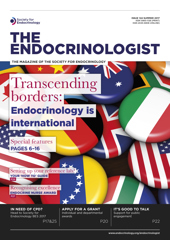Now many months on from the referendum, with ‘Article 50’ triggered, and initial negotiating positions staked out, the shape of the UK’s exit from the EU seems clearer. For most researchers, in the life sciences and beyond, that clarity has brought precious little reassurance. As a group, scientists were overwhelmingly disposed towards ‘Remain’. They continue to be amongst the most vociferous opponents of the path towards Brexit that the Government has charted.
ACCESS TO FUNDING
The list of challenges that Brexit poses to the future success of UK biomedical research have been widely rehearsed. Most obvious is the near certainty that UK researchers will lose their current access to funding from EU mechanisms, including the European Research Council, the Innovative Medicines Initiative, and Horizon 2020 and its successors. These mechanisms, which currently account for over 15% of total UK research grant funding income, have been particularly good value for the UK taxpayer, returning £1.60 of funding for every pound paid into the common pot.
More painful for many researchers will be the impact that the loss of joint funding has on the chances of being part of the large scale, multidisciplinary, collaborative science that increasingly drives discovery and innovation. European funding has been critical in establishing research networks that can operate on a supranational scale. A negotiated resolution of Brexit that allows the UK to take on one of the multiple configurations of associate membership for EU research programmes (such as are enjoyed by Israel, Turkey or Switzerland) may provide some remedy. However, the consequent ‘outsider’ status is unlikely to be as rewarding as current arrangements, from the perspective of scientific leadership or financial advantage.
EMPLOYMENT
‘We should take every opportunity we can to present the exquisite value of science and collaborative endeavour, and to press upon those with influence the need to retain our collaborative options within Europe’
Then there’s the question of recruitment and retention. Over 20% of the UK scientific workforce is estimated to come from the EU. The impact of Brexit-related uncertainty on the commitment to the UK of the talented, mobile workforce that sustains scientific research is already evident in labs across the country. It mirrors what has been documented in the NHS.
It is likely that whatever immigration policy emerges from Brexit will not block recruitment of EU nationals into research posts from senior postdocs upwards. But there will be costs, for both prospective employees and employers, in jumping through the bureaucratic hoops needed to obtain work permits for EU nationals with much needed expertise, just as is currently the case for those from outside the EU.
That, of course, presumes that the researchers we need to recruit will choose to consider the UK in the first place, making the decision to invest their futures (and those of their families) in a country that appears to have turned its back on its natural cultural and scientific partners and is retreating into malignant xenophobia. Such reticence is likely to be magnified at senior (principal investigator) levels. Prospective applicants will need to balance the inherent attractions and advantages of the UK research environment against the kinds of funding and recruitment uncertainties described above.
REGULATORY DIVERGENCE
Finally, there are concerns arising from the impact of any regulatory divergence (e.g. the departure of the European Medicines Agency) on the biotechnology and pharmaceutical sectors and their interest in expanded investment in the UK science base.
Given all of these issues, not to mention the broader political and cultural situation, it is all too easy to despair, to react to recent events as much emotionally as rationally. As Nobel Prize-winning psychologist Daniel Kahneman has noted, it is natural that the negatives of certain and immediate loss tend to outweigh the nebulous promise of future gains. But there is also the concern that too much doom and gloom runs the risk of exacerbating the situation.
OBTAINING A POSITIVE OUTCOME
There are concrete steps we can take. On a personal level, we can reassure our EU colleagues and staff that they are valued, that we understand their concerns and that we are doing what we can to minimise the impact Brexit will have on their lives.
Researchers can seek to establish new collaborations using the opportunities now available through the Global Challenges Research Fund and Newton Fund (whilst recognising it is not possible to simply swap long-established European collaborators for those in Mexico or India). Some research leaders are seeking out adjunct positions at European institutions, which might allow them to maintain access to EU funding and ‘offshore’ some of their research activities.
Above all, we should take every opportunity we can to present the exquisite value of science and collaborative endeavour, and to press upon those with influence the need to retain our collaborative options within Europe. There are strong advocates for science at the Wellcome Trust, in the Research Councils and at UK Research and Innovation who will help us make the case, as well as in Parliament. The recent report1 from Stephen Metcalfe and colleagues on the Parliamentary and Scientific Committee, for example, sets out a series of achievable objectives: if met, these will go a long way to ensuring that our worst fears are not realised.
Mark McCarthy, Robert Turner Professor of Diabetic Medicine, University of Oxford
REFERENCES
1. Metcalfe S 2017 Science Priorities for Brexit







